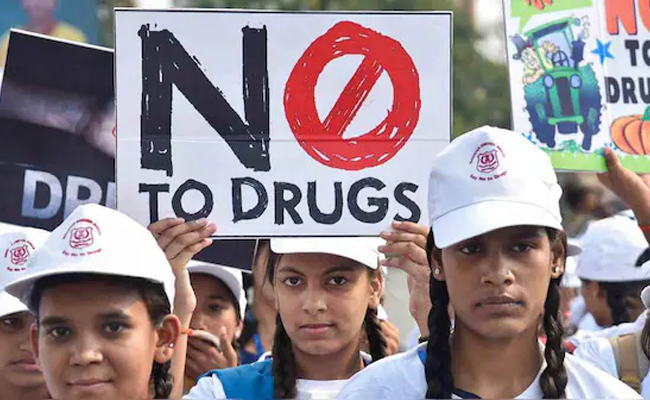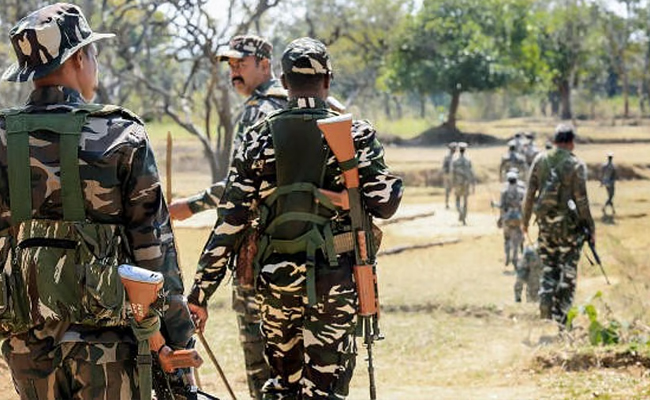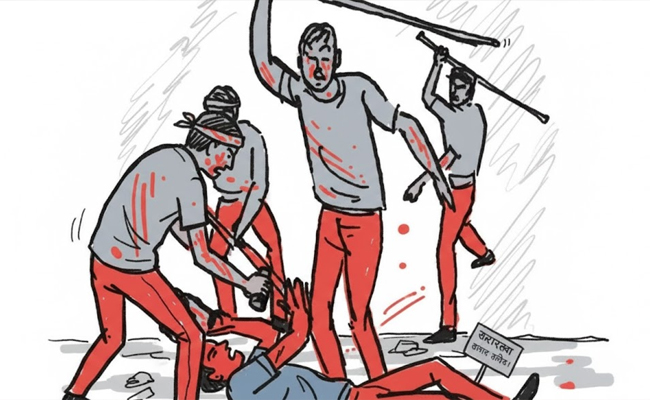New Delhi: The Supreme Court on Monday urged youngsters to avoid illicit drugs, cautioning against the growing trend of viewing drug use as a fashionable or ‘cool’ lifestyle. The Court also emphasised the need for collective efforts to combat drug abuse and rehabilitate victims.
A Bench of Justice BV Nagarathna and Justice N Kotiswar Singh made these observations while denying bail to a man accused of links to a crime syndicate responsible for smuggling 500 kilograms of heroin into India from Pakistan.
The Court expressed concern over the influence of popular culture in glorifying drug use, particularly among the youth.
"For youngsters just beginning to explore the world, the consumption of drugs in popular culture has propelled the cultural push towards a dangerous lifestyle, one that incorrigibly applauds drug use as ‘cool’ and a fashionable display of camaraderie. We implore the youth to firmly resist peer pressure and desist from emulating certain personalities who may indulge in drugs," the Bench observed.
Justice Nagarathna, who authored the judgment, stressed that drug abuse is often rooted in emotional distress, academic pressure, and societal influences. However, she stresses on the point that victims of substance abuse must not be demonised but rehabilitated.
"The unfortunate reality is that victims of substance abuse are not limited to the unfortunate ones who have fallen prey to it but also include their family and peers. Our approach must focus on rehabilitation, not demonisation," the Court noted.
Highlighting the role of parents, Justice Nagarathna said that affectionate and regular communication with children can act as a deterrent to substance abuse. Schools and colleges were also urged to include drug prevention strategies in their curricula.
"Educational institutions must focus on the physical, emotional, and legal consequences of drug abuse through scientifically backed and experiential learning methods," the Court stated.
The Bench further called on local communities, NGOs, and law enforcement agencies to collaborate in awareness campaigns, particularly in vulnerable areas. It also urged the National Legal Services Authority (NALSA) and State Legal Authorities to actively devise and implement such programmes.
In closing, Justice Nagarathna highlighted the need for a concerted effort from parents, schools, law enforcement, and society to tackle the growing menace of drug abuse.
"The arc and web of drug trade cannot be permitted to corrode the shine of the youth of India," the judgment concluded.
Let the Truth be known. If you read VB and like VB, please be a VB Supporter and Help us deliver the Truth to one and all.
Bengaluru (PTI): Karnataka has recorded its highest-ever organ donation figures with 198 donations in 2025, setting a new milestone in the state's transplant history, officials said on Saturday.
This has surpassed the previous record registered in 2023, when the state reported 178 organ donations, they said.
According to health department, with this achievement, Karnataka has secured the third position nationally in organ donations for 2025, setting a milestone for the State Organ and Tissue Transplant Organisation (SOTTO).
ALSO READ: Congress and NCP (SP) to contest separately in Nagpur civic polls
Among the States, Tamil Nadu topped the chart with 267 organ donations, followed by Telangana with 205. Karnataka stood third with 198 donations, while Maharashtra and Gujarat reported 153 and 152 donations respectively, according to official data.





